Bachstr. 2 (previously Hauptstr. 45)
The Stumbling Stones are located on the Hauptstraße (north side), east of the Bachstraße intersection.
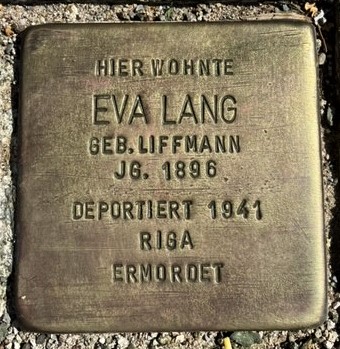
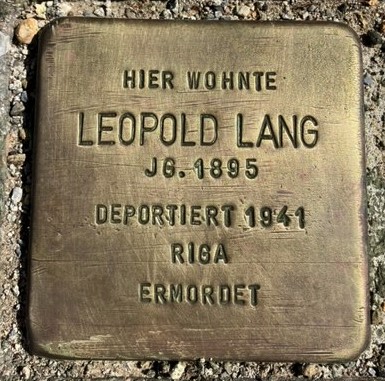
Leopold Lang was born on February 11, 1895, in Ernsbach in County Öhringen, the third child of Jewish merchant Samuel Lang and his third wife Regine, née Heilbronner. During World War I, he and his brother Lazarus Lang, who was known as Louis, were soldiers in the German Army. He received the “Cross of Honor for Front-Line Fighters” for his participation in the war from July 21, 1915, to November 1918.
Wedding and cattle trade
After the end of the war, on June 15, 1920, he married Eva Liffmann from Rodalben / Palatine, who was born on November 11, 1896, in Odenkirchen. Leopold’s half-brother Jakob Lang had built up a successful cattle trade business in Gross-Süssen. Jakob Lang died unexpectedly in 1918. After his death Leopold and his brother Louis took over the cattle business in Gross-Süssen. Later it was described as follows: ‘The two Lang brothers went to cattle markets where they bought cattle, some of which they shipped directly to their customers, others they took to their own stables, from where they were sold to farmers or taken to cattle markets. Around 35 heads of cattle were traded each month.’
In 1925 Leopold and his wife Eva and their sons Manfred and Hugo moved from Ernsbach to Gross-Süssen into the house of his sister-in-law Fanny Lang, at Hindenburgstraße 45. Their daughter Ruth was born there on July 27, 1925. Fanny Lang sold the house to Louis Lang in 1929 and moved back to Rexingen. Louis Lang and his four children moved from Heidenheimer Strasse to Hindenburgstraße 45, where his brother Leopold was already living with his family.
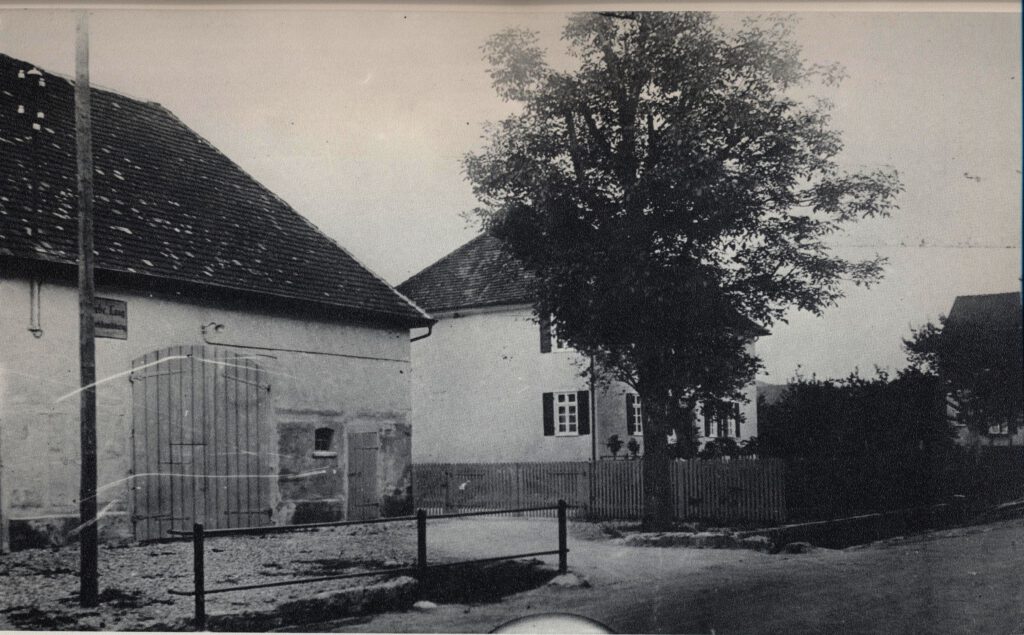
residential house with barn, around 1930 (Photo: Süßen City Archive)
The Lang families were rather well-off; the children were well integrated in the village and at least the two of their sons went to the Gross-Süssen public primary school. It is unclear whether Ruth, born in 1925, still had the opportunity to attend the public school there because in 1927 she was registered as a student at the Göppingen Jewish School. Were the Langs traditionally religious Jewish families? Hugo Lang reported: ‘Our family was reformed. On Friday evenings we celebrated with the traditional customs, we lit candles, my mother kept dairy and meat products separate. We went to the Synagogue in Göppingen two to three times a year. There were seven of us children in the house… we had religious instruction once a month. The teacher came to our house.’
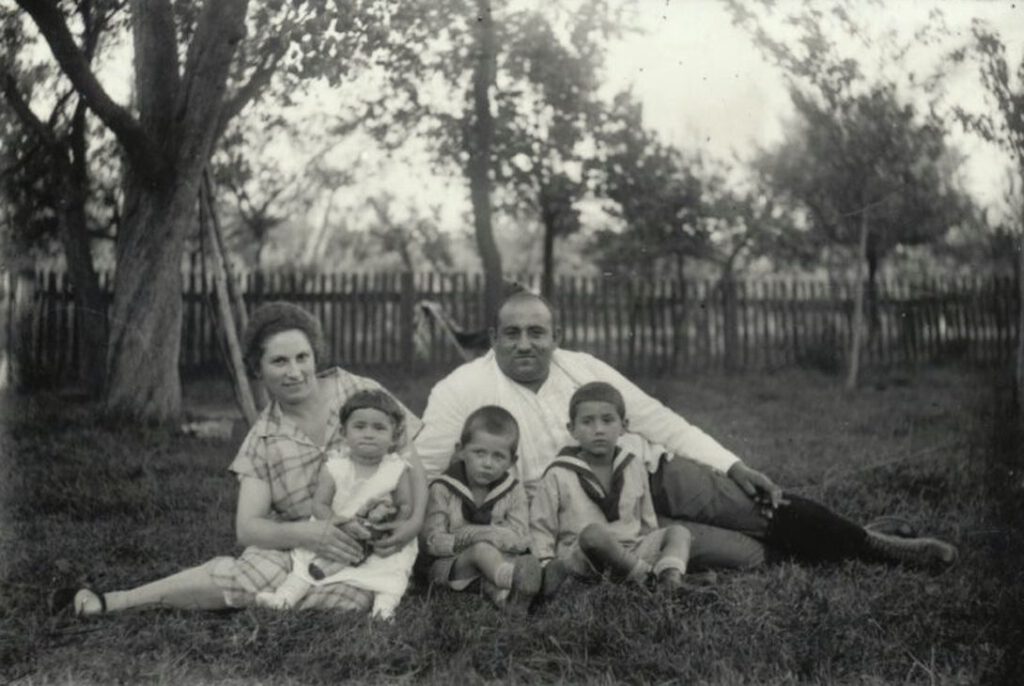
(Photo: Lang family / City Archive Süssen)
Takeover of the Nazi regime
The takeover of power by the Nazi regime put many restrictions on the daily life for all Jewish citizens. From 1938 on, the most drastic one that affected Leopold Lang was that in July 1938 he was banned from working. The cattle business had to be officially discontinued and he was then forced to work as an unskilled laborer at the Friedrich Bader sawmill in Eislingen. On November 9, 1938, on Pogrom Night, he and his brother were arrested with another Jewish man from Süssen and imprisoned for several weeks in Dachau concentration camp.
On December 15, 1938, his brother Louis sold the house at Hindenburgstrasse 45 to the Community of Süssen. On the same day Leopold had to sign a rental agreement for ‘3 rooms, 1 closet, 1 kitchen, 1 corridor, 1 bathroom’ for his family on the ground floor. The two radios owned by the Lang families were confiscated.
Escape
Manfred, the eldest son, described this time in a letter from 1956: ‘During my apprenticeship as a fitter from March 1936 to March 1939 in the Fleischer paper mill in Eislingen … it was my intention to train as an engineer after completing my apprenticeship. This was denied to me, since as a Jew I was not accepted in any … higher educational institution. That is why I emigrated from Germany to England on April 25, 1939, … at the outbreak of war I was arrested because of my German nationality and interned on the Isle of Man … on October 8, 1940, I emigrated from England to the USA.’ In 1941, Hugo, the younger son, got a visa for the USA and he managed to leave the country. Although his parents Leopold and Eva and sister Ruth had also applied for an exit visa, they were not approved.
Deportation
On November 28, 1941, Eva and Leopold Lang and their daughter Ruth were taken to the assembly camp in Stuttgart, along with all the other Jewish family members who were still living in Süssen, and from there they were deported to Riga (Jungfernhof-Riga camp). In the report by the deputy mayor, dated December 5, 1941, it is described as follows: ‘De-Jewification of Süssen. On November 18, 1941, the Jews living in town at building number 45 on Hindenburgstrasse were ordered by the Stuttgart State Police to be deported to the Ostland Reich Commissariat. On November 28, 1941, they left Süssen with all their baggage. Their furniture became the possession of the Reich and will soon be sold to the public.’
According to Ruth Lang, her parents were picked up from the Riga camp on a ‘transport’ at the beginning of 1942 and have been missing since then. In 1951 Leopold and Eva Lang were declared deceased by the Geislingen District Court. Ruth Lang survived years of imprisonment in concentration camps and returned to Süssen in July 1945. Together with her cousins Kurt and Siegfried, she left Süssen on April 23, 1946, and emigrated to America.
Reappraisal of the fates
In the 1980s, the mayor of Süssen, Martin Bauch, campaigned for the renewed study and remembrance of the history of former Jewish fellow citizens. Two streets have been renamed in Süssen: the “Familie-Lang-Weg” and the “Ottenheimer Weg”. The fountain built in 1981 by artist Emil Jo Homolka also commemorates the expulsion of the Jewish families from Süssen. At the invitation of the community, Hugo Lang’s family visited Süssen in 1989.
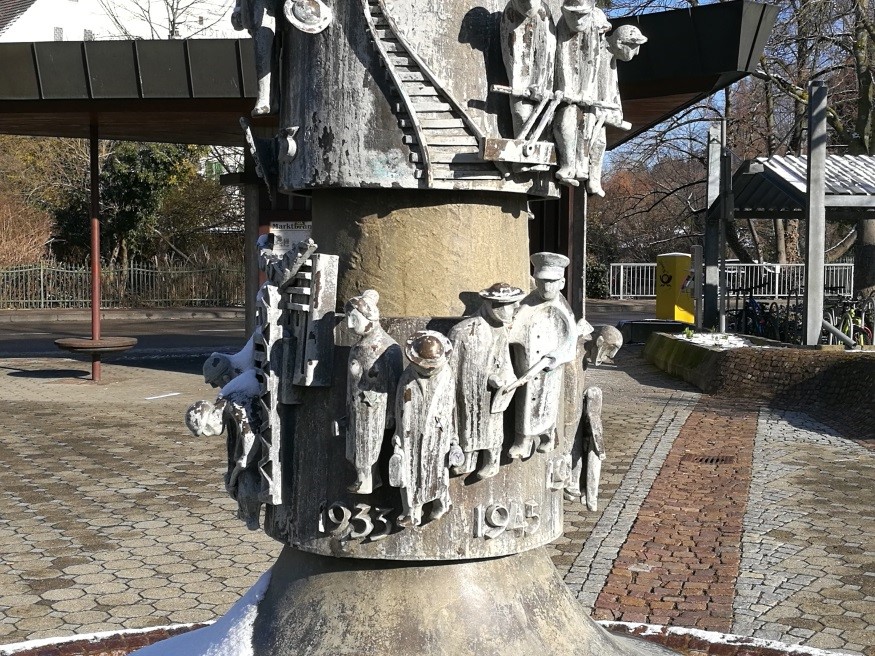
In 1991, the local city council decided to have a memorial stone built at the Stiegelwiesen cemetery. This memorial stone bears the names of the murdered underneath a seven-armed candelabra [Menorah]. It was unveiled in the same year in the presence of Hugo and Inge Lang.
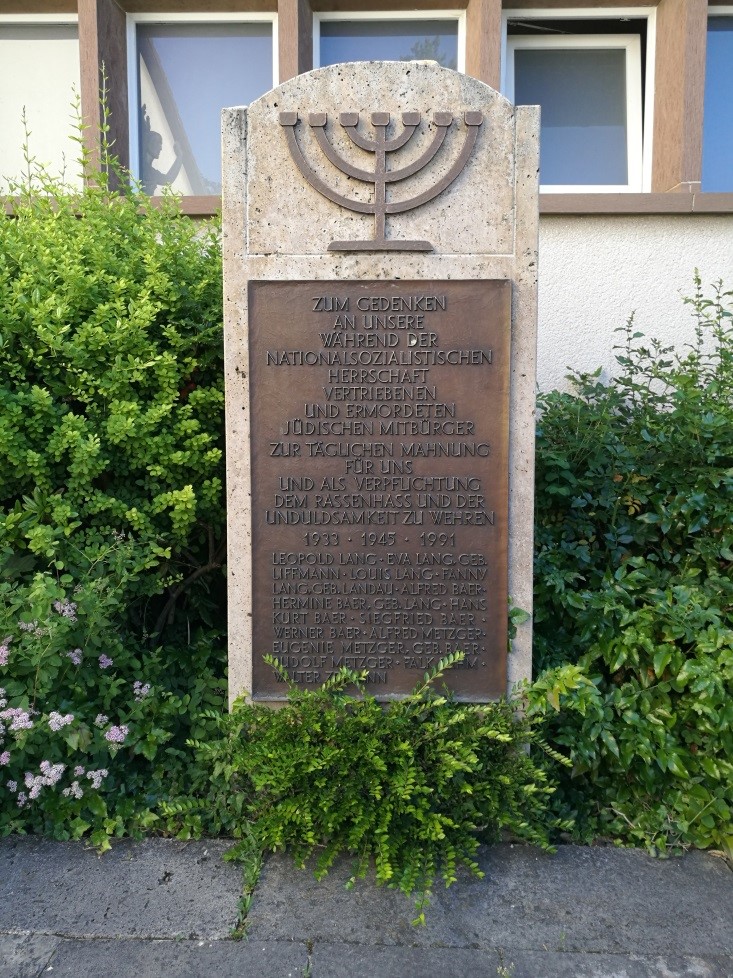
In February 2008, Gunther Demnig laid the Stumbling Stones for Eva and Leopold Lang in front of the house at former Hauptstr. 45.
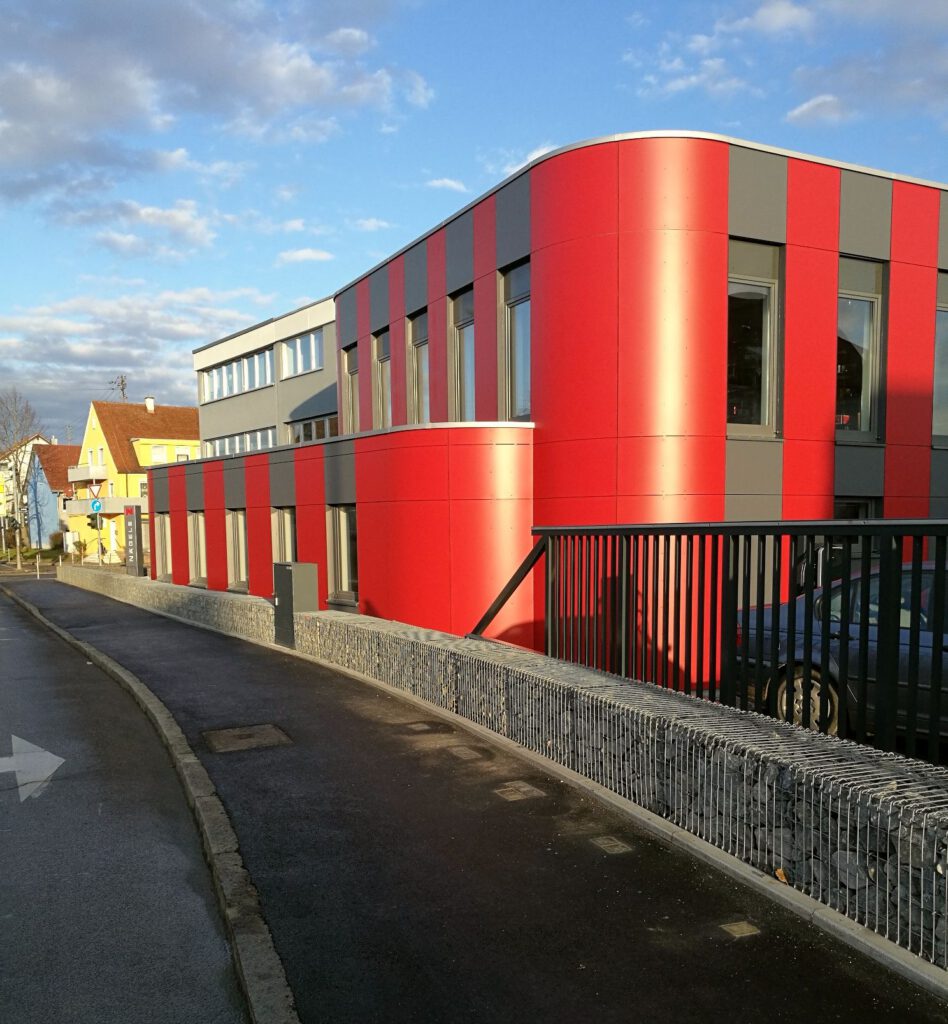
(07/14/2021 ce / ir)



Leave a Reply